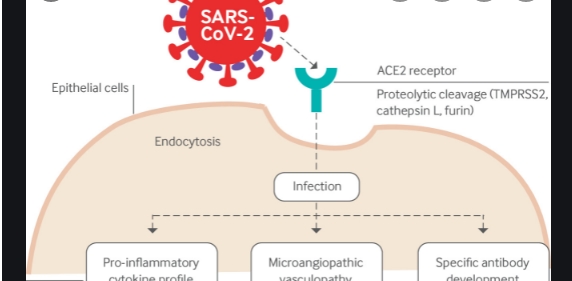Kolkata: Pneumonia, an acute respiratory infection, is a recognized public health emergency in India.
It is associated with an annual mortality rate of roughly 2.5 million adults and children globally.
India alone accounts for 23 per cent of the global pneumonia burden.
World Pneumonia Day is observed every year on November 12 to raise awareness about the disease.
In 2018, 9,28,485 people were affected by pneumonia nationwide. At 16.9%, it also forms the second highest cause of infant mortality in India. Caused by virus, bacteria or fungi, pneumonia
inflames the air sacs in one or both lungs, making breathing painful by limiting oxygen intake.
The most common cause of bacterial pneumonia is streptococcus pneumonia.
Despite being an identifiable and treatable condition, pneumonia diagnosis is often delayed, leading to disease progression and preventable deaths. Typical sputum culture to identify the
cause of pneumonia or other respiratory tract infections can take between 24 and 48 hours. This hinders effective care delivery and targeted treatment interventions. Point-of-care tests, such as
urinary rapid antigen tests, can overcome the barrier of waiting time for accurate diagnosis with laboratory tests.
A rapid test is a powerful tool in the hands of doctors to enable quick testing and swift identification of the causative pathogen, often in as little as 15 minutes. As a result, care providers in clinical settings can easily recommend appropriate, targeted therapeutic approaches. This improves patient outcomes, reduces the length of hospital stays, and decreases mortality. Such diagnostic solutions can be especially suitable in populations with a high prevalence of infection.
Dr Rajesh Swarnakar, Pulmonologist, Secretary of Indian Chest Society said, “Pneumonia imposes a significant burden on the Indian population. Care must be taken to follow the Indian Chest Society-National College of Chest Physicians (ICS-NCCP) established India-specific pneumonia guidelines, ensuring accurate diagnosis is received to guide proper disease management and treatment that addresses and alleviates the patient’s condition. Given the waiting time associated with laboratory-based culture tests, rapid diagnostics can be adopted to streamline this process.”
Commenting on Abbott’s role in the pneumonia diagnostics ecosystem, Sunil Mehra, General Manager for Abbott’s Rapid Diagnostics business in India said, “At Abbott, we are committed to streamlining care for pneumonia patients through reliable and rapid diagnostics, such as with our urinary antigen card, which provides results in 15 minutes. With this easy-to-use technology, patient wait times are reduced as well as the burden on laboratories. As part of our broader Test-Target-Treat initiative, we are focusing on empowering care providers to make targeted treatment decisions sooner with rapid diagnostics. This helps facilitate prompt and effective treatment, so patients benefit from improved outcomes.”
With the intent to accelerate action and reduce mortality due to childhood pneumonia, the HFW launched the ‘Social Awareness and Actions to Neutralize Pneumonia Successfully’
(SAANS) initiative. SAANS focuses on awareness generation and early intervention, enabling caregivers with the knowledge to identify critical signs and symptoms of pneumonia early,
spurring care by healthcare practitioners.


